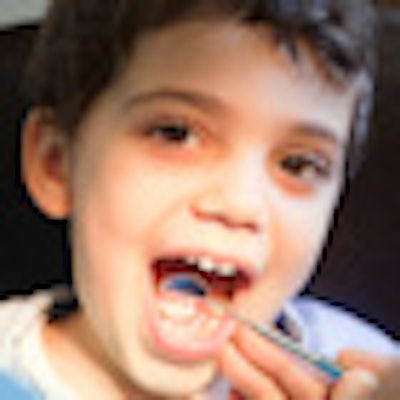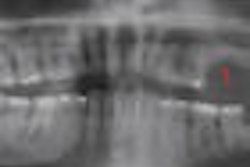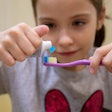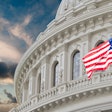
Changes to Maine's access rules for school-based preventive dental care now require public health hygienists to contact a child's dentist if he or she was seen within the past year by the provider. Advocates for children's oral health say the change creates an unnecessary barrier to care, but the dental board says it improves communication between providers.
Advocates for children's oral health say the change creates an unnecessary barrier to care, but the dental board says it improves communication between providers.
John Bastey, director of government relations for the Maine Dental Association, said the dental board's policy has been that children could be treated by public health hygienists only if they didn't have a regular dentist. The new requirement will prevent overlapping treatments, he said.
"The reason the legislature created entities like Public Health Supervision (PHS) was to treat the kids who for whatever reason were not being seen by MaineCare clinics or dentists," he told DrBicuspid.com. "In other words, the PHS folks were always required to screen the kids they saw before treatment and only treat those who were not being seen regularly in a clinic or at a private practice. It’s all about communications, not bureaucracy."
Maine's Board of Dental Examiners approved the rule change last week, board spokesman Doug Dunbar told DrBicuspid.com. "Making certain that appropriate information is exchanged between the hygienist and the last dental care provider, and ensuring that everyone is on the same page, is intended to be in the best interest of patients."
The new requirement was in response to complaints that children were coming in for treatment after they had already received it, Bastey said.
"The issues were always the same: the child had a dental home with a non-profit clinic or a dentist and the PHS staff would do a prophy and other MaineCare (Medicaid) services and bill MaineCare. Then, a week or a month or three months later the child would present to the clinic or the dentist, the work would be redone and when MaineCare was billed the bill was rejected because the PHS had been paid earlier for the that work," he explained. "There wasn’t a way for the provider, of either stripe, to check with MaineCare to see if the child was eligible for treatment so neither the dentist nor the non-profit knew because the child or the parent forgot or just didn’t mention the treatment having been done. The result was lost time (redone work) and lost income for the clinic or the dentist or occasionally the PHS provider."
“It may make communication easier for the dental practice, but it's certainly not easier for the families.”
But Kathy Martin, program coordinator for the Children's Oral Health Program in Portland, said the new provision takes away the parent's right to determine who provides care for their child and where their child receives care, according to testimony she submitted to the board.
Barriers to access
In addition, just because a child has been to the dentist within the past year, it's not an accurate indication that he or she has received all the needed care, she emphasized.
"There are other barriers to access which need to be considered: language, transportation, parents' inability to leave work, inability to pay, and difficulty navigating the oral healthcare system, especially with the immigrant population," Martin pointed out.
Public health hygienists have had difficulty getting such information from previous providers and may have to turn children away, she noted.
"It is unclear why dentists are not required to contact a child's previous provider before seeing the patient," she told the board.
The new requirement also creates time-consuming bureaucratic barriers for hygienists, Martin added. To comply with the new requirement, a dental assistant spent eight hours in one day to work through the necessary paperwork, she noted.
"It was a big waste of time," she told DrBicuspid.com. "It may make communication easier for the dental practice, but it's certainly not easier for the families and doesn't benefit the children."
Meeting needs of the underserved
Board member David Pier, DMD, told DrBicuspid.com that the rule is a clarification of the law and therefore is not a change, so it does not affect access to care.
"The law creating the category of public health service hygienist was passed to serve patients who do not have access to dental care -- it was not to subsidize all preventive care," he said. "Patients who have seen a dentist obviously have access to dental care and therefore do not qualify for this program. Public health service hygienists were never supposed to see patients who have a dentist, so we are not denying anyone access to care."
But Martin said the hygienists provide essential frontline care and are often the first to see the dental needs of school children.
"They are in schools every day and see children who are in pain every day," she told the board. "Parents are often unaware of their child's disease. If not identified by the hygienists, how will parents know the child needs care?"
The changes will create additional hurdles for parents to get their children dental care, she said.
""If we are not able to see the child at school, the parent takes time off from work at the risk of losing his/her job, the practice is responsible for scheduling an interpreter, and the parent is responsible for calling the regional transportation program (RTP) three days in advance," Martin explained. "The child must be kept home from school for the whole day as the RTP will not be responsible for going to the residence to get the parent and pick the child up at school," Martin explained.



















